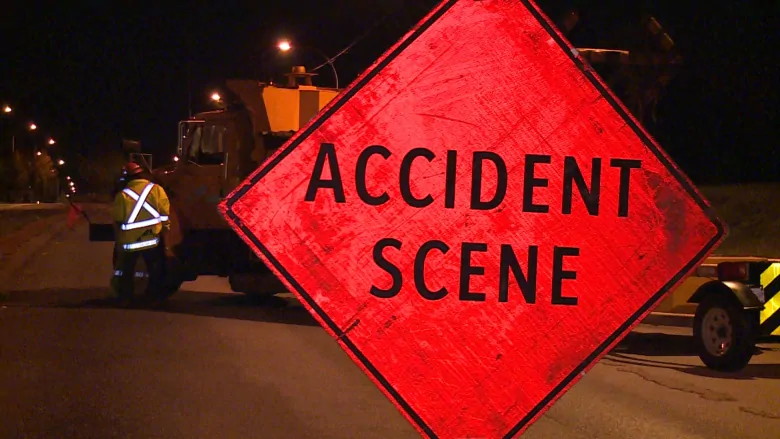Impaired driving and failing to buckle up are two of the most common factors behind deadly motor vehicle accidents in British Columbia, according to new data released by the B.C. Coroners Service.
The report, released Thursday, looked at deaths on B.C. roads over the past decade.
Last year saw 314 motor vehicle deaths across the province, up slightly compared to 2017, but in line with the annual average of 326 per year during the past decade, according to the report.
Just over one-third of deaths involved drugs or alcohol between 2008 and 2016, the most recent years when the data is available.
And between 2011 and 2016, 29 per cent of drivers and passengers who died were not wearing a restraint — that is, either a seat belt or child car-seat straps.
"The message just isn't getting through to some people," said Andy Watson, the manager of strategic communications with the Coroners Service.
"At the end of the day, these are fatalities that, in many cases, are preventable." Watson told CBC's On The Coast.
The Coroners' Service released the report Thursday, in part, because more people are getting on the road for the long weekend.
"The summer months, starting around May long weekend break through to Labour Day weekend, are usually the worst months in terms of the number of fatalities," Watson said.
Spike in motorcyclist deaths
One statistic that stands out in particular is the spike in motorcycle deaths.
In 2018 alone, there were 51 motorcyclist deaths. This is the highest annual total for the past decade and a 50-per-cent increase compared to the year before.
"The death number has gone up, particularly on weekends and in the summer months," Watson said.
He compared the data to information from the Insurance Corporation of British Columbia (ICBC), B.C.'s public auto insurer, and said that while the number of motorcyclists on the roads has steadily increased over the last few years, the number of deaths spiked last year.
"Being able to share the roadways and being cognizant and exercising common sense—at the end of the day, that' really what it comes down to."
And for anyone driving off into the long weekend, Watson offered some advice:
"Wear a seatbelt and don't drink and drive."

